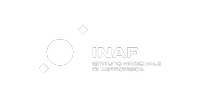StGDeLucia2007
Abstract: The observed properties of galaxies have long been known to depend on the environment in which they are located. The physical origin of the observed environmental trends is, however, still a subject of debate. Much of the argument centres on whether these trends are the end product of physical processes acting over the entire lifetime of a galaxy (the nurture hypothesis), or whether they are established at formation (the nature hypothesis). One element is often overlooked in this debate: according to the current paradigm for structure formation, dark matter collapses into haloesin a bottom-up fashion. Small objects from first and subsequently merge into progressively larger systems. As structure grows, galaxies join more and more massive systems, and so experience a variety of environments over their lifetimes. Thus both initial conditions and subsequent physical processes must play a role in shaping the observed properties of galaxies, and their variation with environment.
Here I propose a detailed investigation of the relative roles of various physical processes, and of conditions at formation in determining the observed environmental trends. The work will exploit synergies between different theoretical methods, and will involve detailed comparisons with obesrvational data from spectroscopic and photometric surveys at both lowand high redshift.
The results should provide the first quantitative estimate of the relative importance of nature and nurture in determining the observed environmental trends within the current standard picture of structure formation. In addition, results from this study will be of important guidance for interpreting data from ongoing and planned surveys, and will provide precious and timely tools for the preparation of key programs and surveys for planned or proposed space missions and large telescope instruments (e.g. ELT, JWST, Herschel etc.).
Dettagli tecnici:
- Struttura INAF: INAF-OA Trieste
- Bando: ERC-2007-StG
- Riferimento: 202781
- Inizio: 01/02/2009
- Durata: 60 mesi
- Coordinamento: INAF-OA TS

